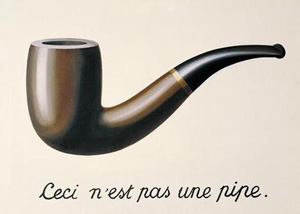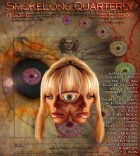To suffer without giving in. Why is that important?
Saying that it’s important to suffer without giving in is a bit of a generalization. I don’t think it applies to everyone, and I wouldn’t say that it’s the only philosophy one should have. But, in this story, with Jack’s character, I feel like he is looking to the
dogs to justify the decisions that he made in his own life. He wants nature to tell him that there is a reason to keep living.
I find Martha’s role in this flash quite interesting. What do you see as her place in this piece?
I’m grateful to Martha for what she did in the piece. I think she’s the most vital character in this story. I did not set out to make her an antagonist. I tried to describe her objectively. But, in the story, she becomes a sponge for blame even when the link between her and the source of tension is indirect at best. She seems to be at least partially responsible for the problems in Jack’s marriage with Vanya. And, some people have said she seems responsible for what happens to the dogs. Martha also has the interesting role of being a counterpart to an animal. Pets get such respect in stories, and it’s interesting for me to see how a human character with human flaws can compete with that.
A lot happens in this short piece. Was it difficult in finding the right balance between all that happens and the desire to maintain the piece’s urgency and tension? What did you end up figuring out?
This was a huge challenge for me, and I still feel like the story is too fragmented in places. I would love to fill in some of the breaks and smooth out transitions. But, what I figured out is that readers can fill in the blanks for themselves. If writers stay true to the most urgent and real details, I think readers are willing to leap faithfully from one scene to the next, no matter how many places they’re asked to go to.
Your stories have appeared in some very fine places, but flash is something you’ve only recently turned your attention to. What challenges does the flash form present for you? And how are these challenges different from those of longer pieces?
Both the flash form and longer forms require generosity as a writer, but the generosity comes out in different ways. In a longer form, I feel like I’m handing gifts out of big truck, and it’s my job to give out the most luxurious gifts, regardless of their size or cost or how hard they were for me to obtain. In flash, I still feel like I’m giving an important gift to someone, but that person is in a more desperate situation. They could be in jail, for example. They’re being watched all the time. They don’t have much room in their cell to play. They are only focused on getting out. So, the gift selection has limitations and priorities. A prisoner won’t enjoy a gift certificate for a year’s worth of ice cream. They’d rather have the nail file hidden in a cake, and it’s my job to recognize that, sacrifice the ice cream certificate I worked so hard to pay for, and hand over the cake.
The 2005 Edge Annual World Question (www.edge.org) asked a question that the BBC called “fantastically stimulating.” One year later, we ask you this same question: “What do you believe is true even though you cannot prove it?”
That’s a beautiful question with so many potential answers! I guess I have to choose one. In my own personal life, I’ve often tried to sacrifice my art to focus on science, because science seems to provide such tangible benefits. If I figure out how to prevent groundwater contamination, then I’ve saved millions of lives. But, as hard as I fight it, the artistic side of me always forces itself out. So, there must be a need for art. I believe that art is essential to life, even if I can’t prove it in a way that would be scientifically satisfying.


